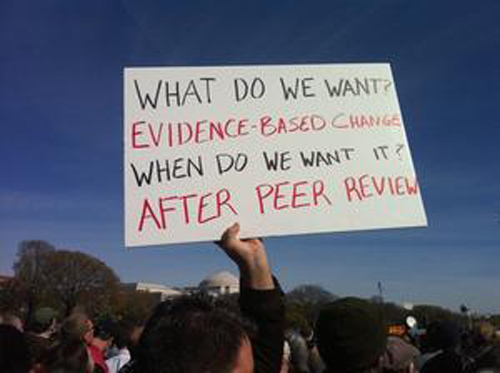It hasn’t been two full years since New York Times bully and quietly disgraced about-to-be-former Princeton professor “Krugtron the Invincible” declared forcefully that North Carolina’s unemployment insurance reform was “a case of meanspiritedness converging with bad economic analysis.”

Counter to more mainstream economic analysis such as by Paul Krugman, whose Macroeconomics textbook with Robin Wells wrote that overly generous unemployment insurance benefits would cause “persistent high unemployment” by encouraging jobless workers to stay unemployed, Krugtron angrily asserted that North Carolina’s reform would cause “worsening the economic situation” and “destroy more jobs.”
To Krugtron, the rationale for such a policy could only be cruelty, Republicans waging “war” out to “punish the unemployed”:
The move to slash unemployment benefits, then, is counterproductive as well as cruel; it will swell the ranks of the unemployed even as it makes their lives ever more miserable.
Meanwhile, in North Carolina:
Because of tough decisions made by the General Assembly and Gov. Pat McCrory, North Carolina’s payroll tax is expected to drop by about $280 million in 2016 and as much as $550 million by 2017. …
If North Carolina had failed to pay its federal debt off this year, employers would have sent an extra $280 million into federal coffers in 2016. Moreover, if current revenue and expenditure trends continue, North Carolina will accumulate a billion-dollar surplus in its UI account by next year. Under a state UI reform package passed in 2013, that will allow for a drop in the state payroll tax in 2017 of about $270 million.
Many liberal activists and Democratic politicians were incensed by the 2013 reforms, calling them unfair and cruel and even predicting that they would hurt the state’s economy by depriving jobless recipients of buying power. Many conservatives and Republicans, however, observed that North Carolina was out of line with its neighbors and competitors in the size and duration of UI benefits. They also argued that there was a risk to making UI benefits too large or long-lasting — that such policies removed the incentive for jobless workers to relocate, learn a new skill, or take a less-than-desirable job in order to begin their climb back up the economic ladder. …
As North Carolina exited the UI extended benefits program and implemented the other benefit changes, the state’s labor market began to improve rapidly.
Since mid-2013, North Carolina has added jobs at a faster rate than the national and regional averages. The unemployment rate has fallen more than that of most states, even if you factor into the equation discouraged workers and others who’ve dropped out of the labor force for various reasons, including those relocating or returning to school.
Speaking of cruel, however, it would probably be cruel at this point to discuss the empirical underpinnings behind this week’s announcement of an “unexpected surplus” in state revenue collections that’s about to trigger even lower corporate tax rates.
It’d be especially cruel to remind people of The News & Observer’s declaration not quite a year ago that “It’s time to rethink NC tax cuts” and worse to put it in light of yesterday’s declaration that state leaders ought to be “Careful with the NC surplus.” So let’s not do those things.


